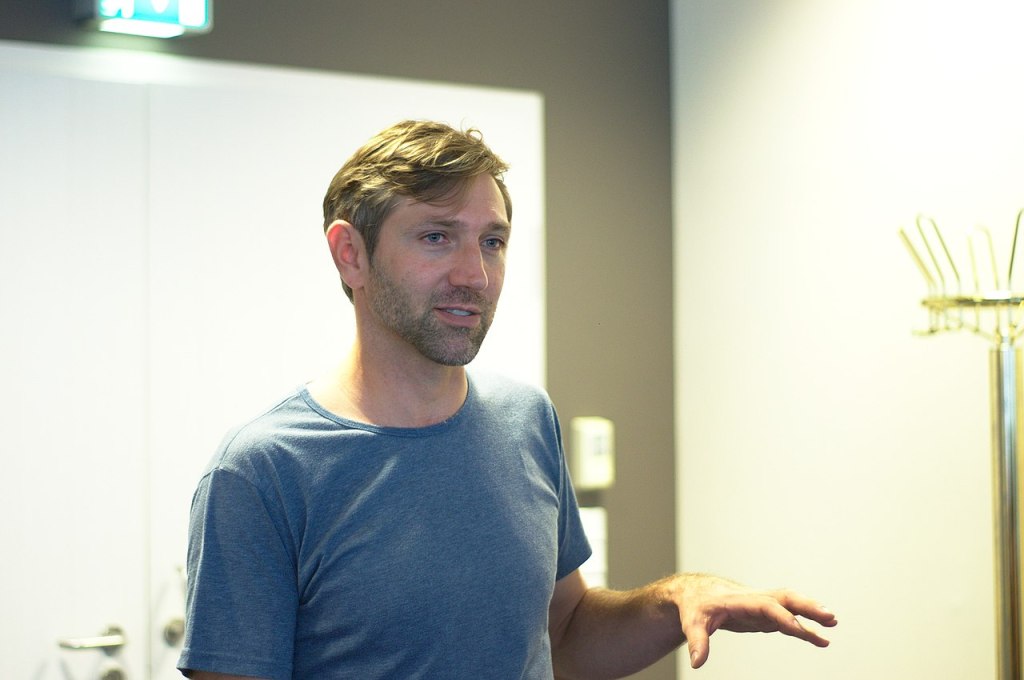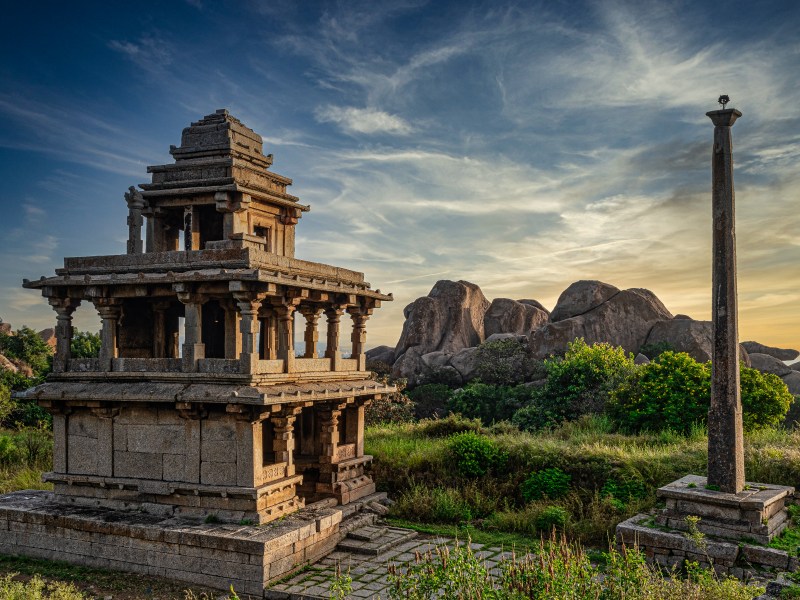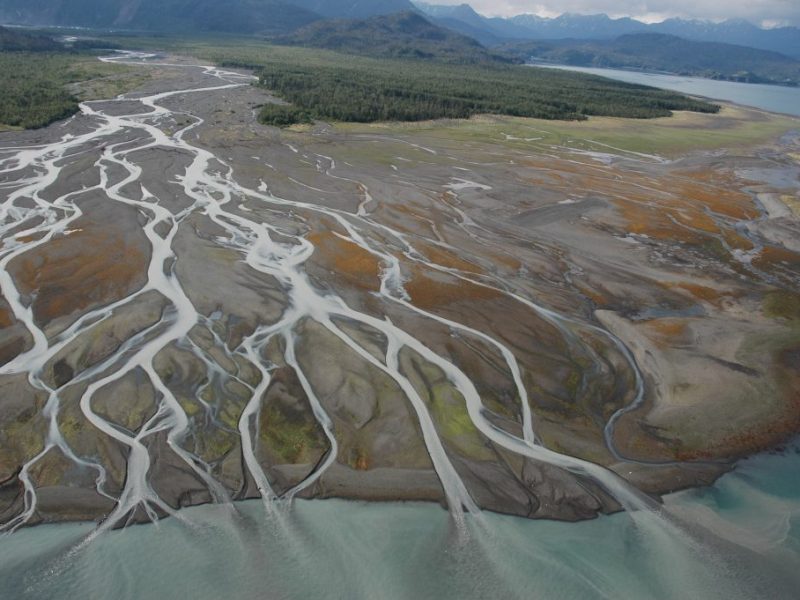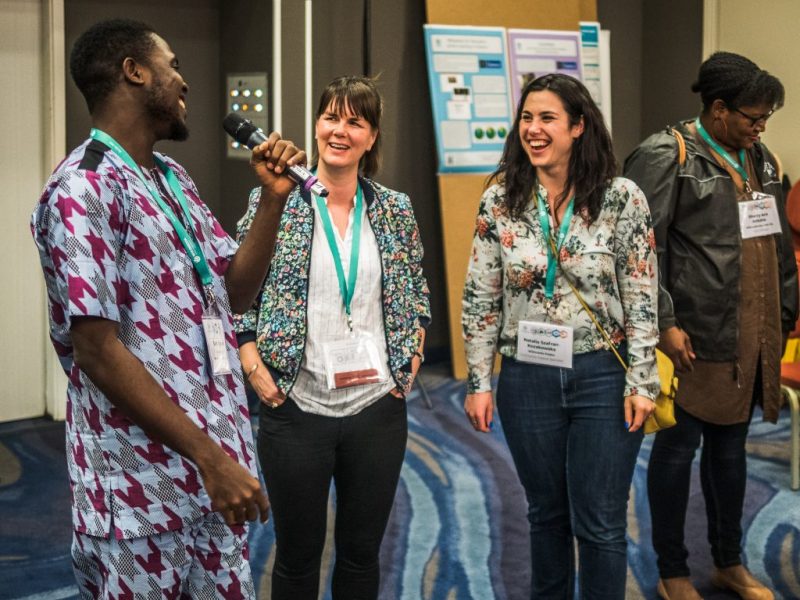Over the last few years, the annual Wikimedia Conference has seen many more individuals in emerging communities. This year, Wikimedians from 79 countries, representing nearly one hundred movement affiliates, contributed to the event’s cultural, regional, and language diversity.
Community member Rupika Sharma interviewed several of these attendees to get their thoughts on the Wikimedia movement, their own communities, the Wikimedia 2030 strategy process, and how their involvement with it all will change over the next five years. They include:
- Felix Nartey, Open Foundation West Africa
- Sam Oyeyele, Wikimedia User Group Nigeria
- Coenraad Loubser, Wikimedia South Africa
- Liang-Chih Shang Kuan, Taiwan chapter/user group
- Rodrigo Barbano Tejera, Wikimedia Uruguay and Wikimedia Digitization User Group
- Nahid Sultan, Wikimedia Bangladesh
Here’s more about Coenraad. Tune back over the next few weeks to read the rest of the interviews as they are published.
———
What are your personal and community’s plans and goals in the contexts of the global free knowledge movement and the Wikimedia 2030 strategy?
We are one of the older chapters; we were the 11th chapter to be recognized almost 10 years ago. Wikimedia-related online communities in our region are growing very slowly. Considering that we’re an all-volunteer chapter, I think our achievements have been significant, but there is so much potential to grow Wikipedia and related projects in Southern Africa and there is a lot more that we would like to do – such as putting out a routine newsletter and keeping our website up to date with our projects.
Most people in South Africa have no idea that they can click, edit and change things [on a Wiki]. Most people are very surprised when they find this. It goes a lot deeper than that: people don’t even understand what the internet is. Many people think that it is just a way to use Facebook or social media channels. It takes a few years of internet use before people really start utilising it to its potential – there is a usage curve – the longer the period that people have engaged with the internet and the longer they have access to it, the more they start using it.
There also seems to be a global trend that our data usage starts increasing almost exponentially once they we’ve been using the internet for four or five years, and much of South Africa still hasn’t reached that point, my guess is that twenty percent of the country has been through that curve, but in the next three to four years we are likely going to have majority of the country reach that point. A goal for me is to make sure when that happens, people understand the Wikipedia way, what Wikipedia is and how being part of this movement can improve their lives
What’s special about [Wikimedia conference] is that it brings together such a diverse group of people from all walks of life, from all industries, from all countries, all languages, all genders, all religions. I have never come across any other voluntary group on this planet that reaches so far and wide, and that is so accepting of each other. I think that the people most capable of bridging the divides in this world are brought together right here. That is something really really special, something to be proud of.
When you think about it, how difficult can it be to get volunteers and to get people involved? We just have to create an environment that invites participation and supports our volunteers. So that is one side of it, and on the other hand, there is dealing with our diversity. If I had to divide participants into two main groups of people, it would be those who are passionate about contributing to- or supporting something for a good cause and then those who have a very specific cause in mind. [In other words] people who want to do something but they are not sure what, and those who know exactly what they want to do. Then, from another perspective, we can overlay two more groups: that’s the people who know how to do certain things really well on the one hand, and on the other hand people who know what they want to do, but do not necessarily know how, but are keen to learn and willing to try.
That is the special thing about Wikimedia Conference, because Wikimedia Deutschland’s [Germany] membership is so big, they are well funded, and they can afford to employ staff who are becoming skilled at the “how” in supporting the volunteers, who generally know the “what”. Bringing these two groups together across so many boundaries, and creating a space in which we can learn from each other is the magic that happens here.
It is one thing to attend a session and see a presentation, and then another thing to go out there, you realize that it is not that easy to put the theory into practice. There is an ongoing balance between learning and practising. The wonderful thing is that in some of the workshops here we get an opportunity to practice in a safe space, while there are skilled people at hand so that as you are trying something and making a mistake or finding that there is something that you thought you understand, but you realize that you don’t, you can ask for assistance in real time, and that is really valuable. Also, you build personal relationships, so that you know who to contact, and this person knows you through all the noise in your mailbox, so the chances of making relevant connections and following up on projects, become easier.
How was your experience at the conference? What did you learn, and how would you implement that in your community back home?
There are equal parts personal growth and skills that will assist our community. In personal growth, I realized that I need to spend more time listening and paying attention to other people’s needs and trying to find ways to assist them; I still find it hard to do that. I still have the urge to drive my own agenda and to do what I think is the best, rather than that of other people – I think we all do that to an extent, even if we don’t realize it, and this is partly also why I joined this movement, in order to learn how to do this better. But I also joined because I can drive things and can get things done, so it is about finding the middle ground, the way we can push and the way we can listen. The 2030 strategy speaks to me about how I [am allowed to] drive things, in which direction. We have volunteers and we are doing many things, but we are not as actively doing outreach as we can and we are not actively coordinating our engagements with partners in order to do mutually beneficial projects, and I would like to see us looking for new sources of revenue in order to fund and drive some of the projects proposed by our community. So, that is three things that I would like to help our chapter achieve.
As told to Rupika Sharma (User:Wikilover90), Wikimedia community member
This interview has been minimally edited, preserving as many of the interviewee’s words as possible.
Editor’s note: This blog was updated in July 2020 for clarity.




